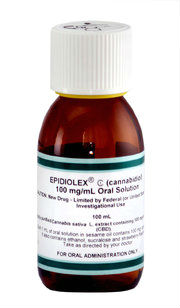The developer of the experimental drug derived from marijuana announced that its first major clinical trial has been successful in reducing epileptic seizures.
This discovery can accredit the medical marijuana movement.
The drug is called Epidiolex and was developed by GW Pharmaceutical.
They stated that Epidiolex succeeded to achieve the most important goal of the trial, which was to lower the convulsive seizures in comparison with placebo in Dravet syndrome (rare epilepsy form) patients.
Epidiolex is a liquid that contains cannabidiol, a marijuana component that doesn’t make people “high”.
However, if this drug gets regulatory approval, it’ll become the 1st U.S. prescription drug extracted from marijuana.
GW states that the existing drugs aren’t helpful enough for about 30% of almost 500,000 children with epilepsy in the U.S. A lot of parents of children with epilepsy want to try extracts from marijuana, of course, made by medical marijuana dispensaries.
As a result of the pressure from these parents, many states considered or passed legislation to make marijuana-based products more easily obtained.
Some families even moved to Colorado, and become “marijuana refugees” since that’s the place where getting a particular extract called Charlotte’s Web is much easier.
The name Charlotte’s Web comes from the girl who first used it in the treatment of seizures.
There are hundreds of other young adults and children who are using this drug under certain programs which permit usage of experimental drugs to desperate parents, outside of clinical trials.
Although many parents stated they noticed significant seizure reductions, experts say that in order to ensure they do work, they have to be compared with a placebo.
Dr. Orrin Devinsky of the Comprehensive Epilepsy Center at New York University Langone Medical Center, the study’s lead investigator, stated that she is happy with this study, as they did things in the way they should be done.
She continues to say that systematic assessments of medical marijuana need to be done in America.
There were 120 children involved in the study, with an average of 13 convulsive seizures in a month and an average age of ten.
They were taking an average of 3 other epilepsy medicines. 60 children were randomly chosen to take a placebo, and the other 60 the drug, as an addition to the epilepsy drugs they were already taking.
At the end of the 14-week treatment, the results of the two groups were statistically different.


Leave a Comment
